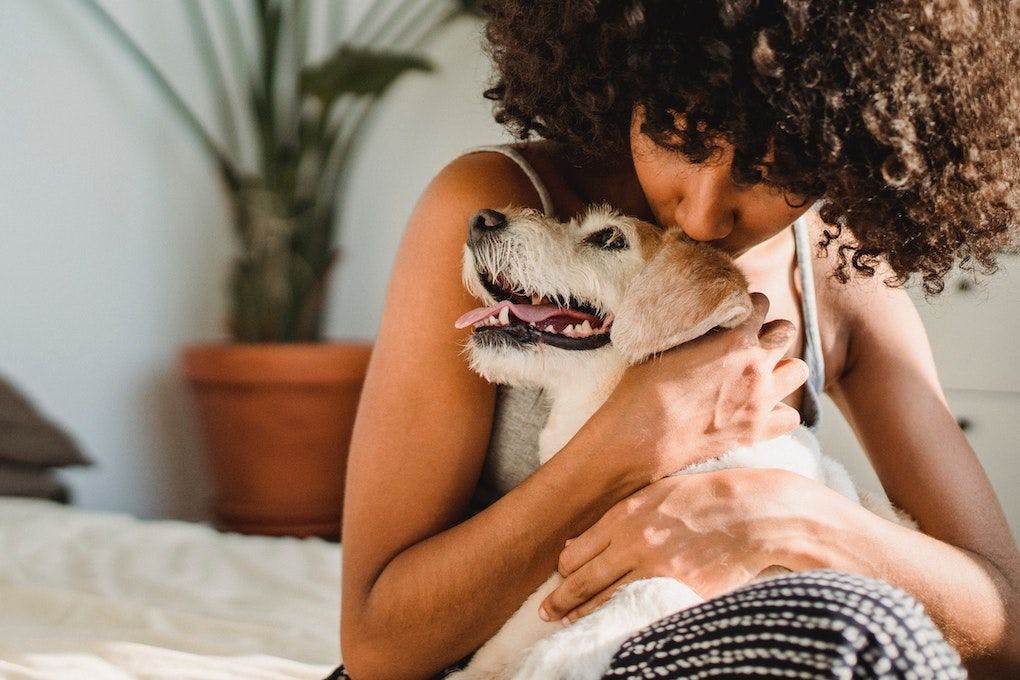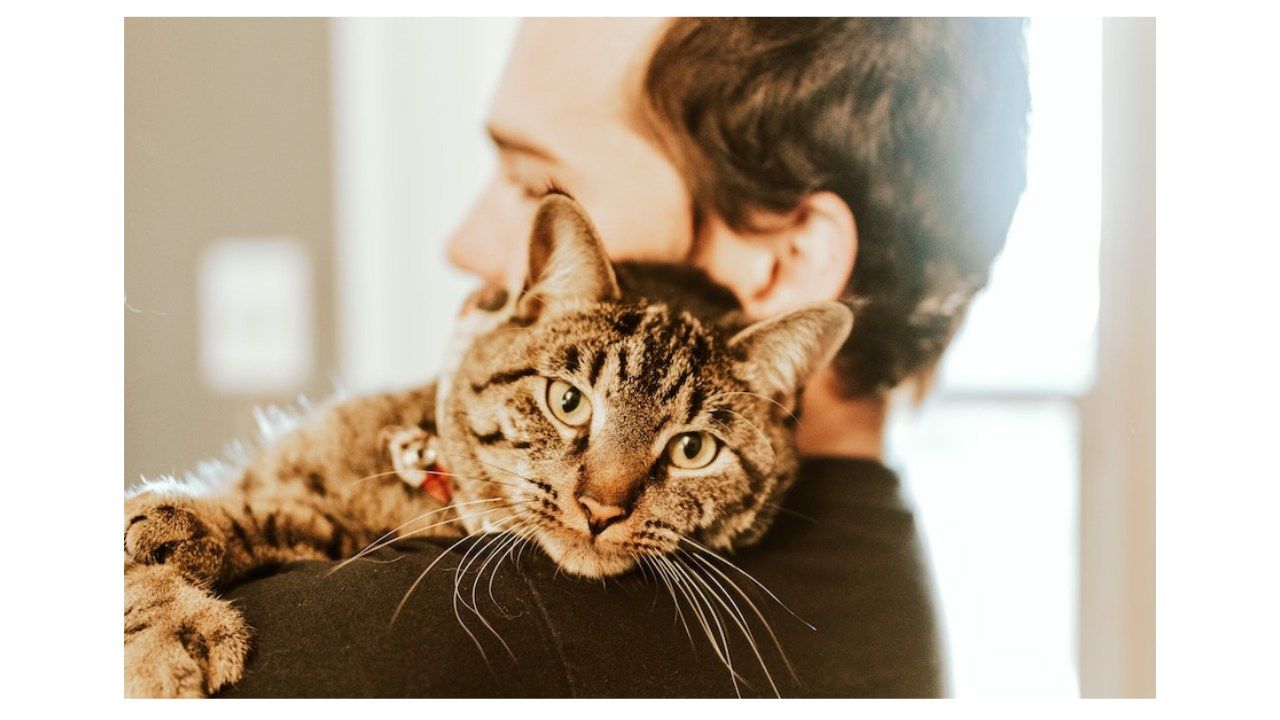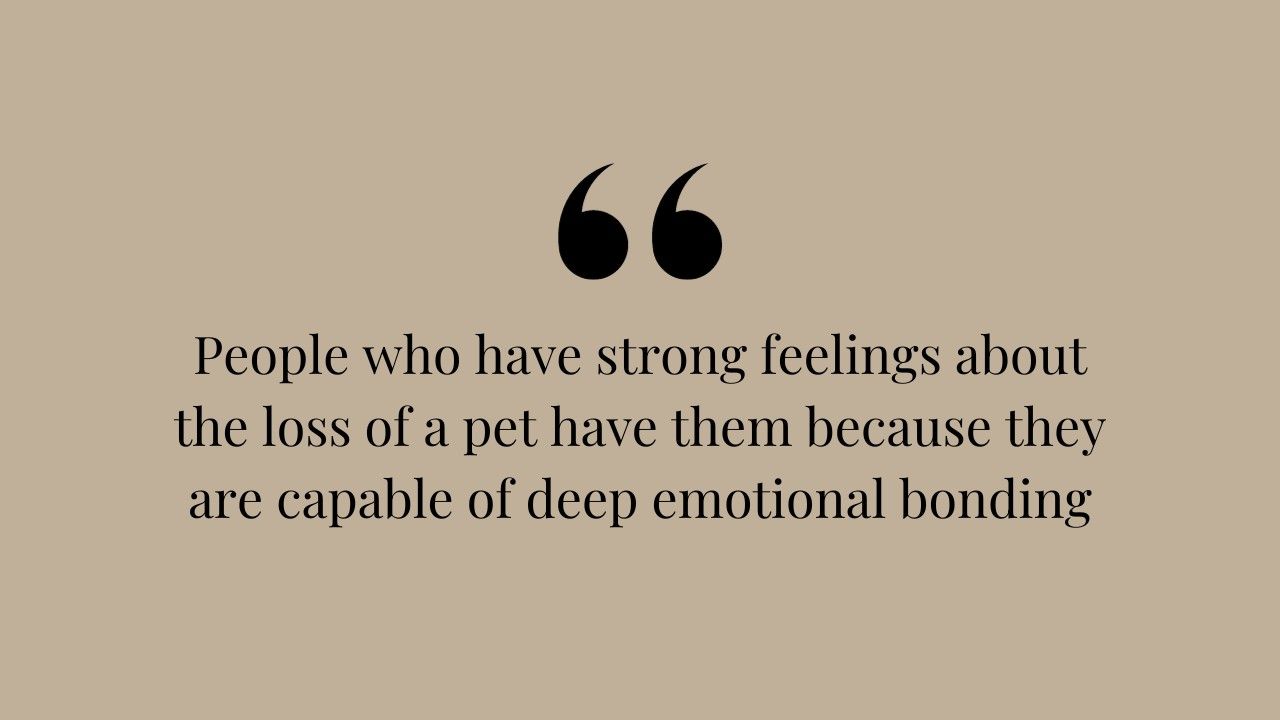
If we are truly a nation of animal lovers, isn’t it time we acknowledged that the death of a pet can be as traumatic as the loss of a friend or family member?
The UK is a nation of animal lovers; 13 million dogs alone can be found in households across the country, making them the most popular pet to have. One in four social media accounts are for our pets, with 65% of owners posting their pets twice weekly on average. With increasing proof that our pets can also help us with our mental health, it’s easy to see why nobody wants to have the conversation about pet bereavement.
Unfortunately, pet bereavement often isn’t taken seriously in society, and tends to be belittled. It is still a taboo subject but, if not addressed properly, could lead to extensive mental health problems. As a pet bereavement counsellor, here are eight of the biggest pet bereavement myths I’d like to acknowledge.
Myth: It is strange to have intense feelings of grief over the loss, or anticipated loss, of an animal.
People who have strong feelings about the loss of a pet have them because they are capable of deep emotional bonding. In 2021, the UK animal charity Blue Cross reported a rise of 38% in calls from people experiencing grief.
The US-based Human Animal Bond Research Institute released figures in 2022 that showed 90% of pet owners feel extremely close to their pet, with 86% stating they would pay as much as it takes if their pet needed extensive veterinary care. And the impact of their passing is not to be underestimated either, as University of Hawaii research found that 4% of pet owners experienced prolonged and extreme grief.
Myth: Pet loss is insignificant when compared to the loss of human life.
The loss of a beloved pet can be as emotionally significant, sometimes even more significant, than the loss of a human friend or relative. One doesn’t have to detract from the other. Depending on the circumstances (an attack, a car accident, etc) losing a pet can cause PTSD, and trigger unresolved grief and trauma from past experiences. If that animal was a therapy pet for an anxiety disorder, not having that lifeline could be damaging for the owner, as well as adding grief to the situation.
For many, their furry family members are – for a variety of reasons – their children, and to deny them that grief isn’t acceptable.

Myth: It is best to replace the lost pet as quickly as possible. This will ease the pain of loss.
Our pets cannot be ‘replaced’. They are not interchangeable. They are all different individuals, with very unique personalities. People need to feel emotionally ready to get another pet before they can successfully accept a new animal into their hearts and family. For some, they try to bypass the mourning process by rushing out to get a ‘replacement’ pet, or have family who insist on another pet too soon. This isn’t good for people, or for the new animal involved.
Myth: It’s OK to lie to your children about pet bereavement, it saves their feelings.
This can be a child’s first experience and exposure to death, and no matter what type of pet passes, they will remember it into adulthood. If the child has grown up with the animal, there is a bond there that will also never be forgotten, and must be handled delicately. Children are not stupid; they are little sponges absorbing everything around them, so the more open and compassionate you can be in the situation, the better the long-term outcome.
It is imperative that you never tell a child that their pet ‘ran away’ or was ‘taken to a farm’. This can actually instil a sense of failure in the child – they believe they haven’t loved the animal enough, making it go elsewhere, or run away – and can cause more harm and hurt than having a real and compassionate conversation.
Myth: Euthanising your pet is a selfish thing to do.
Euthanising a pet can be the most compassionate and humane option to end any intense suffering or declining quality of life for your furry family member. It is actually a selfless thing to do. Having to make this decision can be a heavy burden for a pet owner, and there is the potential for a lot of guilt to arise when this is the situation. Your veterinary team can guide you medically, but they cannot make the ultimate decision.

Myth: Pets don’t mourn for other pets.
It is not yet known for certain that dogs or cats can fully understand the finality or significance of the death of another pet, but cats and dogs are highly in-tune with the emotional state of their owners. Many pets build strong bonds with their companions, and it has been seen that dogs and cats can have adverse reactions and symptoms to the loss of a pet. These could range from loss of appetite, changes in habits (possibly ‘seeking’ their companion), and even changes in vocalisation. Time for adjustment is needed in these situations – for all members of the household unit.
Myth: The best way to protect yourself from the hurt of pet loss is to not get another pet.
Depriving yourself of the unconditional love, and health benefits, of having a pet is a very high price to pay to help insure yourself against experiencing another painful loss. A better course of action would be to take the necessary steps to work through your grief-related issues. Even when you are feeling the hurt of loss, you can still look forward to one day sharing happiness and joy in a new connection with a uniquely different animal.
Myth: The loss of a pet is something you should be able to ‘get over’ alone without professional help.
If you broke your arm you’d go to A&E, so why wouldn’t you go to a pet bereavement counsellor for pet loss?
Those who don’t work through their feelings and reactions about mourning are likely to experience a variety of physical, emotional, and mental health problems later. If you are struggling with the loss of your furry family member, know there is help available, and that you are justified in your grief. It’s our pets’ only fault, that they can’t live for ever.

